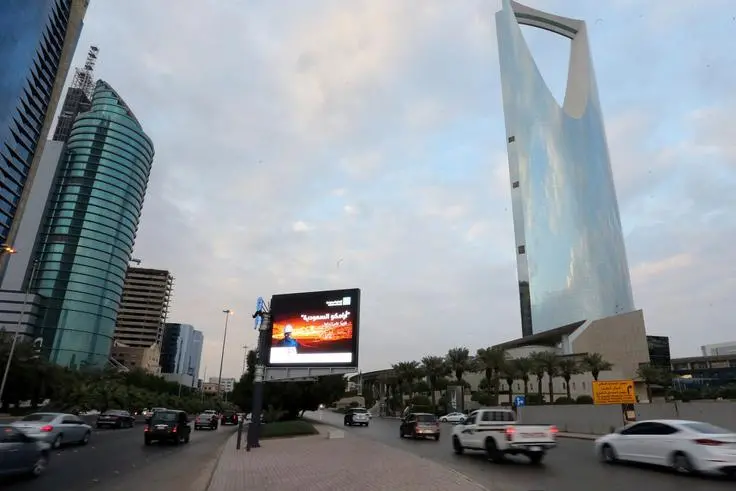PHOTO
While Saudi Arabia’s economy is expected to rebound in 2020 from the downturn last year, weak global oil demand forecasts, which are now exacerbated by a coronavirus-related demand slowdown and barring foreign pilgrims from entering the kingdom, could hinder its recovery.
The downturn in the kingdom’s economy deepened in 2019 as growth estimate of 0.4 percent for the year indicate. For 2020, analysts are estimating a growth rate between 1.3 percent and 2.4 percent, given a rebalancing of the oil market and a depletion of stocks which is causing a supply overhang.
In January, the International Monetary Fund had cited lower oil output when it lowered its forecast for the kingdom’s 2020 growth to 1.9 percent from 2.2 percent.
Riyad Capital said in a report last week said the Kingdom’s economy is expected to rebound to 2.4 percent growth this year after an estimated growth rate of 0.3 percent in 2019.
Oil prices
Analysts expect oil prices, which have been falling in recent weeks amid concerns about weakening global demand for oil due to the spread of the coronavirus virus, to slide further.
Riyad Capital expects to see weakness in oil prices to persist during H1 2020 on the back of a looming supply overhang. “However, for H2 we anticipate a recovery caused by a more balanced global oil market.”
Oil sector real GDP growth is set to turn positive again this year with a growth rate of 1.6 percent after an estimated 3.4 percent contraction in 2019, according to the investment bank.
The International Energy Agency’s (IEA) outlook has said global oil demand growth has fallen to its lowest level in a decade and has downgraded the forecast for crude demand further due to the coronavirus outbreak. According to Reuters, concern about the demand impact from the virus has already pushed Brent crude down by almost $10 a barrel this year.
Jadwa investment bank in a note said the coronavirus outbreak, “if sustained, could substantially lower oil demand growth, which is already forecasted to grow modestly, by 1.2 percent year-on-year, in 2020.”
OPEC and its allies, including Russia, known as OPEC+, are due to meet in Vienna over March 5-6 where member states are expected to decide on either rolling over the agreement to cut 1.7 million barrels a day from the market or to support further production cuts of 600,000 barrels a day.
Non-oil sector
Meanwhile, the Saudi central bank governor Ahmed Alkholifey recently said GDP growth is projected to see an upturn in 2020, pinning his hopes on the non-oil sector to drive the growth.
“Monetary, fiscal and structural policies in my country are all geared towards an expansion of the private non-oil sector GDP over the medium term,” Alkholifey said at the G20 meeting in Riyadh last week.
According to Riyad Capital, the non-oil private sector economy grew at 4.2 percent in Q3 2019, a growth rate last time seen in 2014. “For the full year 2019, we expect real growth to be at 3.5 percent. We forecast continued solid growth of 3.3 percent for the private sector economy in 2020.”
The London-based consultancy, Capital Economics, said while the non-oil sector has continued to perform strongly, it is doubtful if the recent strength can be sustained.
“This underpins our view that, while GDP growth will recover this year, it is likely to disappoint. We have penciled in GDP growth of 1.3 percent for 2020 as a whole,” it said in a recent note.
Suspension of religious visits
On Thursday, Saudi Arabia announced a temporary ban on people seeking to perform Umrah pilgrimage in Mecca or to visit the Prophet’s mosque in Medina, amid concerns over the spread of coronavirus in the region. It said tourist visas would be suspended for those “coming from countries in which the spread of the new coronavirus is a danger.”
If the ban continues for a substantial period or even into the holy month of Ramadan, will badly hit hotels and businesses in the kingdom.
“At present, the authorities have given no indication as to how long the restrictions will remain in place. But there are two periods when the hit to the economy would be felt most acutely. The first will be Ramadan, which will take place over April and May and is traditionally a period for Muslims to undertake Umrah,” Jason Tuvey of Capital Economics said in a note.
“Perhaps the bigger impact would be felt, though, if the restrictions are extended to the end of the July when the Hajj – which accounts for around a quarter of total annual foreign pilgrims – begins,” he said.
(Reporting by Brinda Darasha, editing by Seban Scaria)
#SAUDI #ECONOMY #GCC #OIL #SLOWDOWN #IMF #GDP #HEALTH
Disclaimer: This article is provided for informational purposes only. The content does not provide tax, legal or investment advice or opinion regarding the suitability, value or profitability of any particular security, portfolio or investment strategy. Read our full disclaimer policy here.
© ZAWYA 2020





















